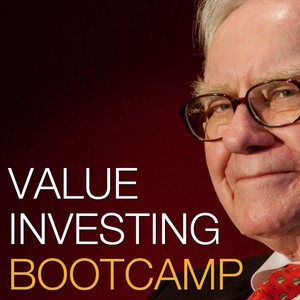
#5 Is climate adaptation the only hope, specifically for LDCs?
12/05/19 • 30 min
UN Secretary General Antonio Guterres opened this year’s United Nations Climate Change Conference—or COP25—by issuing the warning that “the point of no-return is no longer over the horizon.” This follows the release of the UN Environment Programme’s Emissions Gap report, which stated that we are on the brink of missing the opportunity to limit global warming to 1.5 degrees Celsius.
But do these circumstances mean that the international community will recognize the critical role of local governments to advance appropriate climate action? Will there be a more concerted effort to finance such climate action in the world’s least developed countries, which will feel the worst effects of climate change. And will this signal rising support for adaptation measures in relation to mitigation?
David Jackson, Director of the Local Development Finance Practice of UNCDF who oversees our local climate adaptation programme (LoCAL), shares his thoughts on all of these questions, as well as what we can reasonably expect from this year’s COP25. We sat down with David just days before COP25.
Capital Musings is a production of the Partnerships, Policy and Communications unit of the United Nations Capital Development Fund and UN Web TV.
Producers: Victoria Guridi, Fernando Zarauz, Carlos Macias
UN Secretary General Antonio Guterres opened this year’s United Nations Climate Change Conference—or COP25—by issuing the warning that “the point of no-return is no longer over the horizon.” This follows the release of the UN Environment Programme’s Emissions Gap report, which stated that we are on the brink of missing the opportunity to limit global warming to 1.5 degrees Celsius.
But do these circumstances mean that the international community will recognize the critical role of local governments to advance appropriate climate action? Will there be a more concerted effort to finance such climate action in the world’s least developed countries, which will feel the worst effects of climate change. And will this signal rising support for adaptation measures in relation to mitigation?
David Jackson, Director of the Local Development Finance Practice of UNCDF who oversees our local climate adaptation programme (LoCAL), shares his thoughts on all of these questions, as well as what we can reasonably expect from this year’s COP25. We sat down with David just days before COP25.
Capital Musings is a production of the Partnerships, Policy and Communications unit of the United Nations Capital Development Fund and UN Web TV.
Producers: Victoria Guridi, Fernando Zarauz, Carlos Macias
Previous Episode

#4 The difference between women’s economic empowerment and women’s economic development
If you were asked "what is the difference between women's economic empowerment and women's economic development," would you know the answer?
Women's economic empowerment has been an essential driver of the economic development agenda; uniting individual nations, multilateral organizations, NGOs and impact investors. But what does successful women's economic empowerment truly mean, particularly in the world's least developed countries? How can success be achieved when cultural challenges are pervasive and profound? And what are the prospects of achieving women's economic empowerment in the LDCs when we are so far behind in achieving the SDGs?
Samina Anwar, Programme Manager for the Inclusive and Equitable Local Development programme--a joint programme of UN Women, UNDP and UNCDF--offers her insights on the future of women's economic empowerment in the LDCs and beyond. She also answers this question: if we do not achieve SDG5 (Gender Equality) by 2030, what would have been the reason?
Capital Musings is a production of the Partnerships, Policy and Communications unit of the United Nations Capital Development Fund and UN Web TV.
Producers: Victoria Guridi, Carlos Macias, Fernando Zarauz
Next Episode

#6 Financial inclusion for those who have been displaced and excluded
Over 70 million people have been displaced due to conflict, persecution or war. When we think of those who have been forcibly displaced—whether they are refugees, asylum seekers or internally displaced people—we often think of their lack of footing within their home or country. But we rarely think about how they contend with financial exclusion. How can displaced populations cultivate a financial role outside of their communities or countries? And what can they do to ensure that they are not resigned to a life of outside formal economies, specifically women?
UNCDF’s Pamela Eser shares insights, lessons and challenges from her experience in one of the most difficult areas of economic development. She also shares how modern solutions like digital financial tools, coupled with traditional solutions like savings groups, have been effective in advancing financial inclusion for displaced people residing in some of the most difficult areas in the world.
Capital Musings is a production of the Partnerships, Policy and Communications unit of the United Nations Capital Development Fund and UN Web TV.
Producers: Victoria Guridi, Carlos Macias and Fernando Zarauz
If you like this episode you’ll love
Episode Comments
Generate a badge
Get a badge for your website that links back to this episode
<a href="https://goodpods.com/podcasts/capital-musings-49999/5-is-climate-adaptation-the-only-hope-specifically-for-ldcs-2502092"> <img src="https://storage.googleapis.com/goodpods-images-bucket/badges/generic-badge-1.svg" alt="listen to #5 is climate adaptation the only hope, specifically for ldcs? on goodpods" style="width: 225px" /> </a>
Copy




